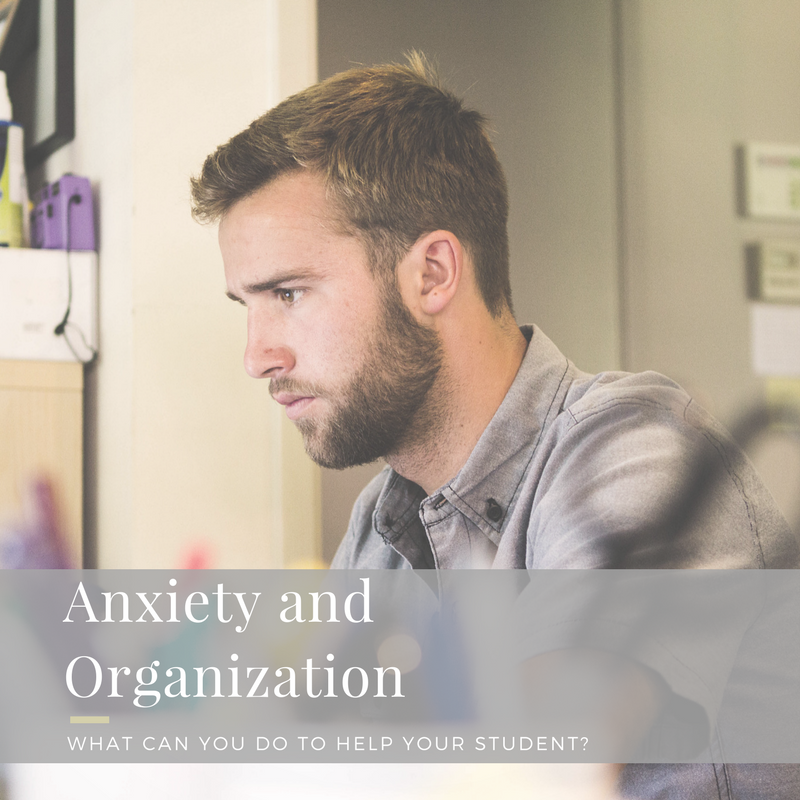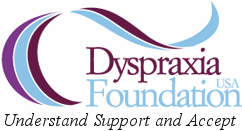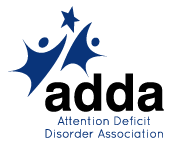Anxiety and Organization
Anxiety has been on the rise in children and teens since the 1950’s. Anxiety disorders include panic disorder, social anxiety, specific phobias, generalized anxiety disorder, separation anxiety disorder, anxiety secondary to a medical condition and substance-induced anxiety disorder.
According to Anxiety and Depression Association of America:
- 40 million Americans have an anxiety disorder
- 75% of them had their first episode by age 22
- 85% of college students have reported feeling overwhelmed by everything they have to do at some point within the last year
Depend on which type you have, symptoms can range from feeling worn out to trouble concentrating to tingling hands to nauseated to paralyzing fear plus many more. If you personally don’t have anxiety, it may be hard to imagine how difficult life can be. I don’t have anxiety but my daughter does. Researching and seeing her deal with it allowed me to have a better understanding of what my clients may be feeling.
My favorite clients to work with are students. There is so little of their day that they get to control. Parents, teachers, coaches, and other adults tell them where to go, what to do and often how to do whatever they are doing. Education is required by law. Most parents choose public schools for their students. School can be overwhelming for many students but especially for those with anxiety or depression.
According to the National Institute of Mental Health:
- More the 25% of kids aged 13-18 have a diagnosable anxiety disorder at some point in their life (that’s before college; if you missed the data from the ADAA in the beginning of this blog go back and look)
- 6% of these meet the criteria for a severe case
- Girls are more likely to develop anxiety than boys (30% vs 20%)
- White teens are more at-risk that kids of other backgrounds
These symptoms can cause challenges for the school day:
- Feeling overwhelmed – many of us have felt this way at least once but to feel it repeatedly, daily. It takes its toll. Some students have trouble just getting out of bed to get to school. For some people, anxiety is trigger by noise, other people, academics, and phobias. Have you been to a high school lately? There are teachers who have quiet and orderly classrooms which may be a sanctuary but most don’t because students are learning through collaboration. Still, it is the hallway that can cause real issues. They are loud, crowded, and full of potential triggers.
- Fine-motor skills can be affected by tremors and jerky movement from either the anxiety or from side-effects of medication. These tremors can make note-taking, controlling a mouse or trackpad, playing an instrument or creating artwork difficult. All activities students can be asked to perform during the day.
- Immobilized – Paralyzed by fear, you know you should move and say something but you can’t. It must be terrifying and embarrassing for students.
- “Make nice” to suppress true feels and avoid conflict – People with anxiety don’t like conflict in general meaning they may not speak up for themselves when they need to just so they can just the peace. It may be something simple like what book to a group is going to read for Language Arts class but it could be something bigger like dealing with a bully. This fear is part of what bullies have over their victims.
- Not sleeping well – Sleep is good. We need sleep to “reset” our brains and restore our bodies. If you can’t fall asleep because you can’t quiet your mind or if you can’t stay asleep, you aren’t getting the rest you need.
- Indecisive -A byproduct of not getting enough sleep and the doubting voices in your head tell you that you are going to make the wrong choice.
- Lack of concentration – Also a byproduct of not enough sleep. You are too tired to focus. Schoolwork and homework present a challenge in being able to focus, thinking clearly enough to prioritize and getting enough sleep to feel re-energized.
- Trouble letting go of things – People with anxiety often love their stuff. They are emotionally attached to it. What they don’t realize is that the more they accumulate, the more stress they will have. The clutter around them is causing added (unneeded) stress.
What to do? Anxiety is a very treatable disorder. If you or someone you know might have anxiety. Talk to your doctor. The Anxiety and Depression Association of American can be a resource.
- Feeling overwhelmed – In addition to anything you doctor tells you to do or try. Try yoga or meditation
- Fine-motor skills – when possible record classes, use a LiveScribe, use Dictation Dragon or similar software, get a copy of the teacher’s notes, try breathing exercises before class starts
- Immobilized – It is also best to have a plan prepared beforehand but here are some simple steps. Relax, focus on your breathing, replace negative thinking with positive coping statements, accept your feelings but naming them which gives them less power.
- “Make nice” to suppress true feels and avoid conflict – Again have a plan beforehand. Think of the different situations when you might have to voice your opinion, come up with statements for each and visualize the whole scene. Even practice saying the statements out loud so you are not having to think in the moment; just do what you practiced.
- Not sleeping well – What is relaxing to you? Make up a bedtime routine that doesn’t involve screens at least an hour before bedtime. Do the activities that you feel relaxing. Read a book, take a bath, create art, play an instrument. Whatever feels relaxing and safest to you to give yourself a better chance at getting some good sleep. Also, try going to mind with positive statements like; I am thankful for the X hours of sleep I am about to get which is exactly what I need to feel rested.
- Indecisive – Sleep and make decisions beforehand so you don’t have to weigh the pros and cons in the moment. Make clear rules for yourself using your values, needs, and boundaries to guide you.
- Lack of concentration – Get some sleep.
- Trouble letting go of things – Again a plan is helpful. Making rules is helpful. For example, you might have simple rules like if something is broken, missing parts or damaged it goes no exceptions or if I haven’t used it in a year it goes, or if it no longer fits me it goes. You might try more challenging rules to whittle down large collections like I am only going to keep X number of Y or I am going to keep only the X, I get as gifts from family. You might de-clutter in sections. You might have a friend help. You might need to hire someone to help. If you hire an organizer, hire one with professional development training for working with people who have chronic disorganization, anxiety, or ADHD or someone who is a organizing coach (they use life coaching techniques during organizing sessions) I am an organizing coach with training for working with people with ADHD, chronic disorganization, and students. You don’t want someone who says that do everything. They just aren’t trained well enough for what you need.


Big Bang Coaching, LLC provides coaching for the neurodiverse.




